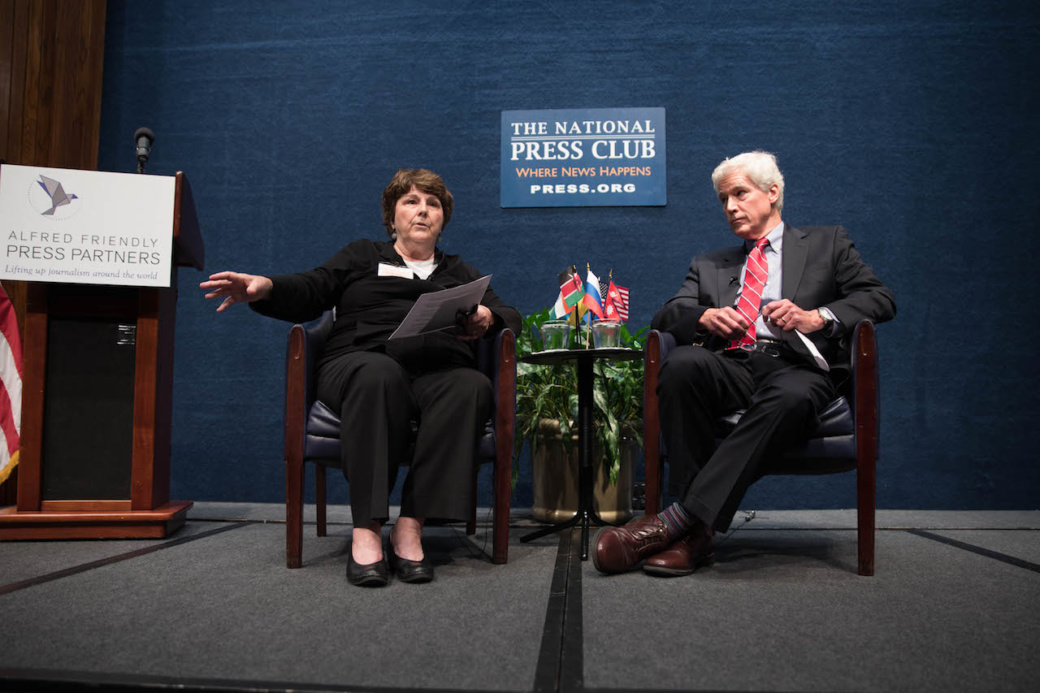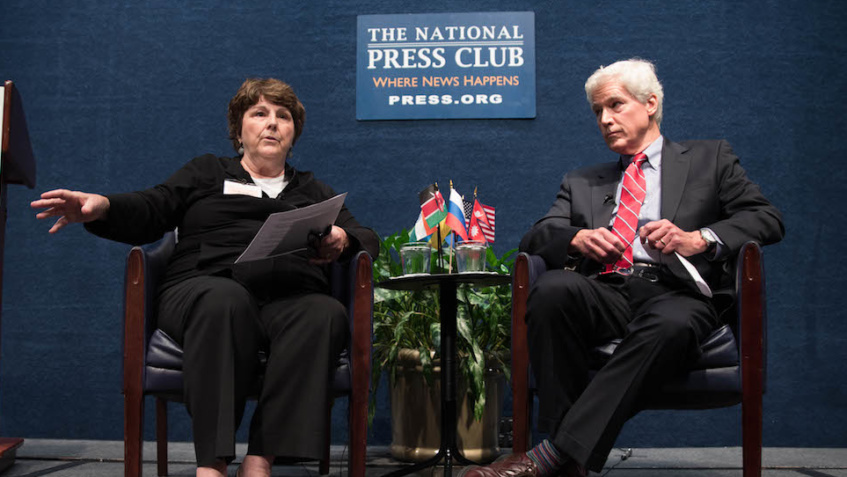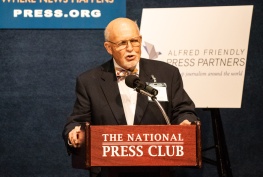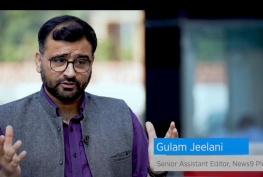
Karen DeYoung’s discussion with Tim Carrington centered on America’s biggest foreign policy conflicts
Karen DeYoung, associate editor and senior national security correspondent for The Washington Post, says the verbal threats being made by President Donald Trump and North Korea leader Kim Jong-un, along with their lack of experience and freewheeling personalities, have “heightened the risk of this being a real crisis.”
DeYoung, who has worked for more than three decades at the Post, also provided insights on America’s relations with Russia and Iran in a question-and-answer session at the National Press Club during the Alfred Friendly Press Partners’ annual graduation ceremony Sept. 8.
Tim Carrington, an Alfred Friendly Foundation board member and a former international reporter for the Wall Street Journal, moderated the conversation with DeYoung, who’s won the Pulitzer Prize and other awards for national and international reporting.
DeYoung told the audience of more than 120 people that the United States really doesn’t know much about how North Korea really works. And provocative language used by Trump, along with mixed messages from the secretary of state, has compounded North Korea’s “confusion” about U.S. intentions. Kim, at 33, is young and inexperienced, and Trump is also inexperienced in politics and foreign policy, she pointed out. They’re also self confident and tend to trust their gut instincts, which “can be dangerous,” she said,
“Together with the actual, real gains we’ve seen out of North Korea in terms of nuclear capability, this has heightened the risk of this being a real crisis as opposed to the kind of cyclical crisis that we’ve gone through before,” DeYoung said. “I don’t think anyone wants war, but the room for misunderstanding and for taking an action that is misunderstood by the other sides, and provoke a reaction that nobody really intended, is much higher than what it used to be.”
DeYoung predicted there would be more sanctions issued against North Korea, which came true later in the month when Trump announced an expansion of sanctions. “The question is whether they will be obeyed or enforced,” she said. Carrington asked her whether U.S. sanctions have worked anywhere. “Iran,” she responded. “A lot of pressure was put on Iran; they could see (the sanctions) were holding them back. And they saw (a negotiated agreement with the U.S ) as a way out, in exchange for a price that was worth paying for what they got out of it. There was a lot of cheating and a lot of exceptions, but I think you could argue that the sanctions worked.”
U.S. relations with Russia have also become more tense than expected during the Trump administration, DeYoung said, even though the two countries have been cooperating in several areas of multilateral relations such as the war in Syria.
“They say they aren’t talking, but they’re still talking — they are actually getting things done,” she said. “The wild card of course is the investigation here” (into Russia’s interference in the election and possible collusion). “Their hopes of having better relations with this country under the Trump Administration have been thrown to the wind now.”
Watch the video of this Q&A:
Watch Nicholas Cheng ask DeYoung a follow-up question about Korea:
Watch Yuliana Romanyshyn ask about a possible Russia-U.S. diplomatic back channel:
Watch Smitha Rajan ask about America’s foreign policy competency:





